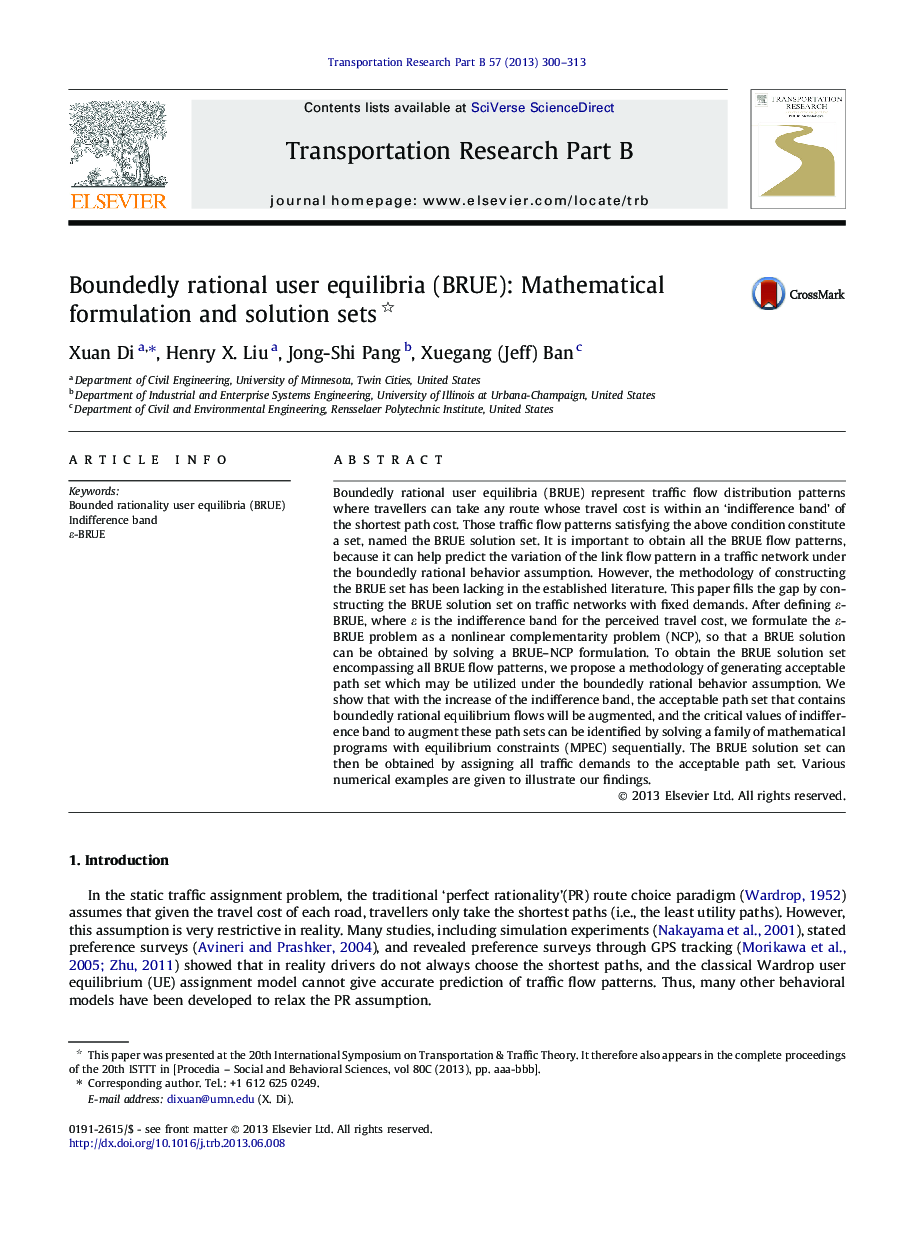| Article ID | Journal | Published Year | Pages | File Type |
|---|---|---|---|---|
| 1131966 | Transportation Research Part B: Methodological | 2013 | 14 Pages |
•Formulate ε-BRUE as a nonlinear complementarity problem.•With the increase of ε, the acceptable path set will be augmented.•Given linear link performance functions, the BRUE set is union of convex subsets.•Various numerical examples are given to illustrate our findings.
Boundedly rational user equilibria (BRUE) represent traffic flow distribution patterns where travellers can take any route whose travel cost is within an ‘indifference band’ of the shortest path cost. Those traffic flow patterns satisfying the above condition constitute a set, named the BRUE solution set. It is important to obtain all the BRUE flow patterns, because it can help predict the variation of the link flow pattern in a traffic network under the boundedly rational behavior assumption. However, the methodology of constructing the BRUE set has been lacking in the established literature. This paper fills the gap by constructing the BRUE solution set on traffic networks with fixed demands. After defining ε-BRUE, where ε is the indifference band for the perceived travel cost, we formulate the ε-BRUE problem as a nonlinear complementarity problem (NCP), so that a BRUE solution can be obtained by solving a BRUE–NCP formulation. To obtain the BRUE solution set encompassing all BRUE flow patterns, we propose a methodology of generating acceptable path set which may be utilized under the boundedly rational behavior assumption. We show that with the increase of the indifference band, the acceptable path set that contains boundedly rational equilibrium flows will be augmented, and the critical values of indifference band to augment these path sets can be identified by solving a family of mathematical programs with equilibrium constraints (MPEC) sequentially. The BRUE solution set can then be obtained by assigning all traffic demands to the acceptable path set. Various numerical examples are given to illustrate our findings.
